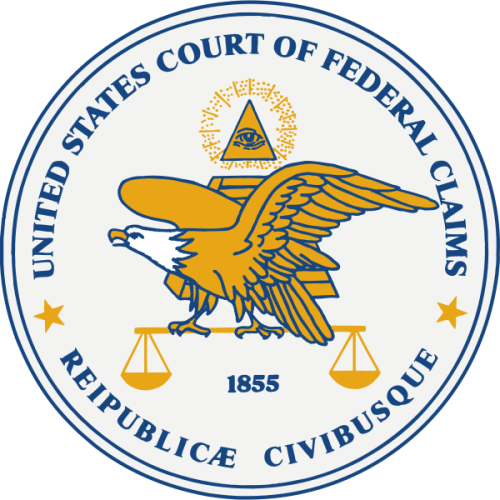Virginia Solicitor General Toby Heytens, nominated for the Fourth Circuit, is, in many ways, a liberal counterpart to President Trump’s most notable appellate nominees: young; impeccably credentialed; and politically active.
Background
Born on December 24, 1975, Toby Jay Heytens received a B.A. from Macalester College in 1997, where he was on the mock trial team, Seth Hattena, Mock Trial Judges College Students, Telegraph Herald, Dec. 2, 1995, and a J.D. from the University of Virginia Law School in 2000. After graduating, Heytens clerked for Chief Judge Edward Becker on the U.S. Court of Appeals for the Thirs Circuit and then for Justice Ruth Bader Ginsburg on the U.S. Supreme Court (his clerk year on the court included NYU Dean Trevor Morrison, SDNY Judge Jesse Furman, and 8th Cir. Judge David Stras).
After his clerkship, Heytens joined the D.C. office of O’Melveny & Myers as an Associate. Heytens left to become a professor at Cornell Law School, and then, in 2006, at the University of Virginia Law School, where he stayed until 2018 (notwithstanding a three year leave of absence to work in the U.S. Solicitor General’s Office). In 2018, Attorney General Mark Herring named Heytens to be Virginia’s Solicitor General, and Heytens has served in that role since.
History of the Seat
Heytens has been nominated to replace U.S. Circuit Judge Barbara Milano Keenan, who will be moving to senior status on August 31, 2021. Heytens was one of three candidates recommended by Virginia Senators Mark Warner and Tim Kaine for the vacancy on May 25, 2021. Frank Green, Senators from Virginia Recommend Three Candidates to Fill Federal Appeals Court Vacancy, Richmond Times-Dispatch, May 25, 2021. Heytens was announced on June 30, 2021.
Legal Experience
After his clerkships, Heytens started his career at O’Melveny & Myers, where, appointed under the Criminal Justice Act, Heytens represented Richard Wayne Simons, convicted of burglary in Maryland. See Peter Geier, New Trial Ordered for Burglary, Baltimore Daily Record, Nov. 2, 2004. Heytens was able to get the Court of Special Appeals to reverse Simons’ conviction, arguing that the prosecutor’s failure to disclose an inculpatory witness statement required suppression of the identification. See id.
While Heytens has spent most of his career since O’Melveny in academia, he did have two notable periods of litigation: from 2007 to 2010 in the U.S. Solicitor General’s Office; and since 2018 as Virginia Solicitor General.
During the former period, Heytens argued six cases before the U.S. Supreme Court:
Fed. Express Corp. v. Holowecki, 552 U.S. 389 (2008) – The Age Discrimination in Employment Act (“ADEA”) requires a plaintiff to file a “charge” with the Equal Employment Opportunity Commission (“EEOC”) within 60 days of the discriminatory act. This case discussed whether filing an intake questionnaire within the 60 days qualifies as filing a charge even where the agency fails to file a formal “charge” within the time limit. Heytens argued as amicus that the filing of an intake questionnaire did not qualify as a charge under the law. The Supreme Court disagreed in a 7-2 ruling by Justice Anthony Kennedy and held that the plaintiffs had met the requirement to file a charge.
Flores-Figueroa v. United States, 556 U.S. 646 (2009) – The petitioner in this case was an illegal immigrant who had used a social security number belonging to another person and was convicted of two counts of aggravated identity theft. The question raised was whether the government needed to prove that the petitioner was aware that the social security number he used belonged to another person for the conviction. Heytens argued that the government did not need to prove this element but the Supreme Court held unanimously, in an opinion by Justice Stephen Breyer, that it did.
Arizona v. Johnson, 555 U.S. 323 (2009) – The question was whether a police officer could, without probable cause, frisk a suspect during a traffic stop in the middle of a conversation about a topic unrelated to the stop. Heytens argued as amicus that probable cause was not needed in that scenario. The Supreme Court, in a unanimous opinion by Justice Ruth Bader Ginsburg, agreed that questions about unrelated topics during the temporary detention of a traffic stop did not transform the stop into a consensual encounter and that an officer could search an individual for weapons without probable cause.
United Student Aid Funds Inc. v. Espinosa, 559 U.S. 260 (2010) – In this case, Heytens argued as amicus in favor of a lender, arguing that the lender’s due process rights were violated when a borrower was permitted in discharging $4500 in loan debt in a bankruptcy proceeding without a showing of “undue hardship.” The Supreme Court, in a unanimous opinion by Justice Clarence Thomas, held that the failure to find “undue hardship” was mere legal error and did not rise to a due process violation.
Maryland v. Shatzer, 559 U.S. 98 (2010) – This case involved an inmate who had been questioned in 2003 regarding allegations of sexual abuse of his child, and had invoked his Miranda rights at the time. The inmate was subsequently questioned in 2006 by a different detective who was unaware of the previous invocation. The question before the Supreme Court was whether the statements made in the 2006 confession should be suppressed due to the 2003 invocation. Heytens argued as amicus that they should not be suppressed and the Supreme Court, in a unanimous opinion by Justice Antonin Scalia, agreed.
Dolan v. United States, 560 U.S. 605 (2010) – The question in this case was whether the 90 day time limit to award restitution under the Mandatory Victims Restitution Act was jurisdictional, with Heytens arguing that the district court could still award restitution outside the limits. The Supreme Court agreed in a 5-4 ruling by Justice Stephen Breyer.
During his time in academia, Heytens managed the University of Virginia Law School Supreme Court Litigation Clinic and also argued one case before the U.S. Supreme Court:
City of Hays, Kansas v. Vogt, 584 U.S. ___ (2018) – Heytens represented the City of Hays, Kansas, in arguing that the Fifth Amendment rights of a former police officer were not violated when compelled statements were used during a probable cause hearing. The Supreme Court did not decide the case, instead dismissing the petition for certiorari as improvidently granted after oral argument.
As Virginia Solicitor General, Heytens serves as the Commonwealth’s top appellate lawyer and has argued three more cases before the U.S. Supreme Court:
Virginia Uranium, Inc. v. Warren, 587 U.S. ___ (2018) – In this suit, Heytens defended Virginia’s ban on uranium mining against a pre-emption challenge under the Atomic Energy Act. The Supreme Court ultimately upheld the Virginia ban in a 6-3 decision, with Justice Neil Gorsuch writing for a plurality of three justices in the controlling opinion.
Virginia House of Delegates v. Bethune-Hill, 587 U.S. ___ (2019) – This case arose as a challenge to “racial gerrymandering” in the redistricting of state house districts in Virginia. After a lower court panel struck down 11 districts, the Solicitor General’s Office declined to appeal, and the Virginia House of Delegates (then controlled by Republicans) filed an appeal. The Supreme Court dismissed the case in a 5-4 opinion by Justice Ruth Bader Ginsburg on the basis that the Virginia House of Delegates lacked standing to appeal.
Mathena v. Malvo – In this case, Heytens sought to reinstate sentences of life imprisonment against D.C. sniper Lee Malvo, vacated by a lower court due to prior Supreme Court precedent regarding life in prison for minors. After argument, the Supreme Court dismissed the case without decision due to an intervening change in law in Virginia.
In addition to his work before the U.S. Supreme Court, Heytens has defended Virginia’s coronavirus restrictions against legal challenges. See, e.g., Denise Lavoie, Virginia Defends Coronavirus Restrictions in Church Lawsuit, A.P. Int’l, May 7, 2020. In other notable matters, Heytens successfully argued before the Virginia Supreme Court that the risk of violence justified a weapons bar on a gun rights rally, see Denise Lavoie, Virginia’s Highest Court Upholds Weapons Ban at Gun Rally, A.P., Jan. 17, 2020, and defended the legality of removal of a Robert E. Lee statue from Richmond. See Adam Klasfeld, ‘A Matter of Racial Equality’: Virginia’s Solicitor General Urges Top Court to Affirm Ruling Allowing Removal of Robert E. Lee Statue, Newstex Blogs, June 8, 2021.
Writings
Having been an academic for most of his career, Heytens has written a number of articles discussing developments in the law. Some of his writing is summarized below:
The Constitutionality of Blaine Amendments
As a law student in 2000, Heytens argued in a note that Blaine Amendments, amendments in state constitutions that bar public money from being spent to benefit religious institutions, are constitutionally suspect under the Equal Protection Clause as they discriminate based on religion. See Toby J. Heytens, School Choice and State Constitutions, 86 Va. L. Rev. 117, 140 (February 2000). Heytens details the anti-Catholic animus underlying many of the amendments and suggests that any effort by states to restrict public money in a voucher program from going to religious schools would likely run afoul of the Equal Protection Clause. See id. at 153-54.
“Transitional Moments”
Heytens has been particularly active in writing about the issues and problems that arise in applying changes in the law. In 2006, Heytens wrote on the application of changes in criminal law and precedent on cases that are pending during the “transition.” Toby J. Heytens, Managing Transitional Moments in Criminal Cases, 115 Yale L.J. 922 (March 2006). Heytens criticizes traditional views of “forfeiture” in the criminal context as unduly restrictive, arguing that we shouldn’t penalize criminal defendants from making legal arguments that were not viable at the time that the defendant was initially convicted. See id. at 942-43. In 2012, Heytens further discussed retroactivity in the law and potential remedies when the law changes. Toby J. Heytens, The Framework(s) of Legal Change, 97 Cornell L. Rev. 595 (March 2012).
Reassignment on Remand
In 2014, Heytens authored an article discussing the rare practice of appellate courts reassigning decisions to different district court judges after reversing the original opinions. Toby J. Heytens, Reassignment, 66 Stan. L. Rev. 1 (Jan. 2014). Heytens suggests that the practice be more clearly delineated through local rules that are broadly applicable to reassignment decisions rather than having the decisions be made on a case-by-case basis. See id. at 54.
Political Activity
Heytens has an extensive record of political contributions, almost exclusively to Democrats. Recipients of Heytens’ contributions included the Presidential campaigns of Barack Obama, Hillary Clinton, and Joe Biden, as well as Gov. Ralph Northam, A.G. Mark Herring, and Rep. Abigail Spanberger.
Overall Assessment
With excellent academic credentials, and a record of strong appellate advocacy, Heytens can be deemed well-qualified for a seat on the Fourth Circuit. Nonetheless, he may draw opposition based on his academic writings, as well as his litigation history (including his defense of the Lee statue removal and the firearms ban) and his political contributions.
However, barring any unexpected developments, Heytens will likely be confirmed in due course. On the bench, Heytens is expected to pad up the Fourth Circuit’s aging center-left majority.




